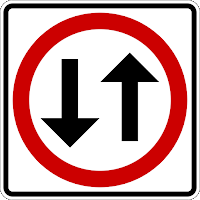Nephrologists face many daily challenges in their role managing chronic kidney disease (CKD). CKD is an expensive and debilitating condition that affects approximately 14% of Americans. Adding to this list of challenges is the fact that nephrologists often assume the role of primary care physician to patients with end-stage kidney disease (ESKD) who require chronic dialysis. In one study, 90% of surveyed nephrologists responded that they provide primary care to their patients receiving chronic dialysis. According to these same nephrologists, only 20% of these patients had another primary care physician. Nephrologists, in their role as primary care providers, offer general health care counseling, preventive care, referrals, immunizations, and care of minor acute illnesses that are unrelated to a patient’s kidney failure. However, this same survey concluded that nephrologists, while providing these essential services, often fail to conform to the standard guidelines of primary care provision. Furthermore, nephrologists do not address women’s health issues as much as primary physicians do. According to a Canadian study conducted in 2005, 80% of nephrologists and 85% of family physicians think that dialysis patients should receive primary care from primary care providers (PCPs) and not from nephrologists. In addition, the study showed that there was rampant miscommunication between members of these two fields, leading to “duplication or omission of services.” Indeed, it remains unclear whether there is evidence for benefit for increased access to nephrologists.
Where nephrologists are likely to excel is in the management of conditions that are comorbid with ESKD, including diabetes mellitus (which 90% of nephrologists surveyed said they manage), cardiac disease (75%) and gastrointestinal disease (69%). Nephrologists are better-equipped than primary care physicians to manage the wide-reaching effects of ESKD, which affects multiple bodily systems in unique ways. Because conditions like ESKD need to be considered in virtually every healthcare decision made by their doctor, the expertise of nephrologist is critical in medical decision making. For instance, in managing diabetes special care must be taken in the administration of anti-hyperglycemic agents as the pharmacokinetics and patient response may be drastically altered by the presence of ESKD.
As Bender and Holley note,
“caring for patients with chronic kidney disease…requires the broad-based approach characteristic of primary care medical practice.”
Simply by virtue of being experts in ESKD, nephrologists become better primary care physicians for these patients.
On the other hand, there are significant issues with nephrologists acting as PCPs.
Should we include training in primary care in nephrology fellowship curricula to achieve parity in acting as PCPs? Unfortunately, this comes at a time where 40% nephrology fellowships are going unfilled and a shortage of nephrologists is predicted further hampering efforts due to time constraints in seeing patients. One glimmer of hope is Medicare has recently designated the dialysis unit as an originating center for telehealth services, but services provided still fall under the monthly capitated premium limiting reimbursements for time-pressed nephrologists. Finally, the question of whether more contact time with their nephrologists improves outcomes for patients with ESKD remains.
Open communication between individual nephrologists, PCPs, and the leaders of their respective academic fields is necessary if the American medical community is to optimize kidney care. Whether nephrologists should serve as PCPs for their patients with ESKD remains an open question. The benefits of knowledge of pearls and pitfalls of treating dialysis patients is intuitive, but significant hurdles remain including time limitations, reimbursement for services, adequacy of training, and lack of evidence base.
Noah Lieberman, University of Pennsylvania
Nathaniel Reisinger @Nephrothaniel


